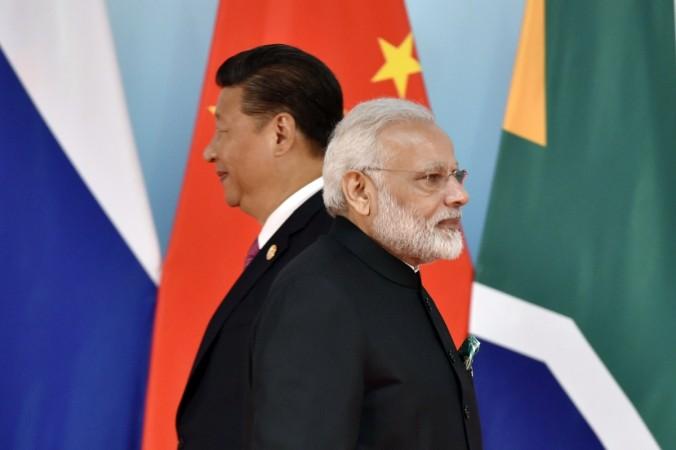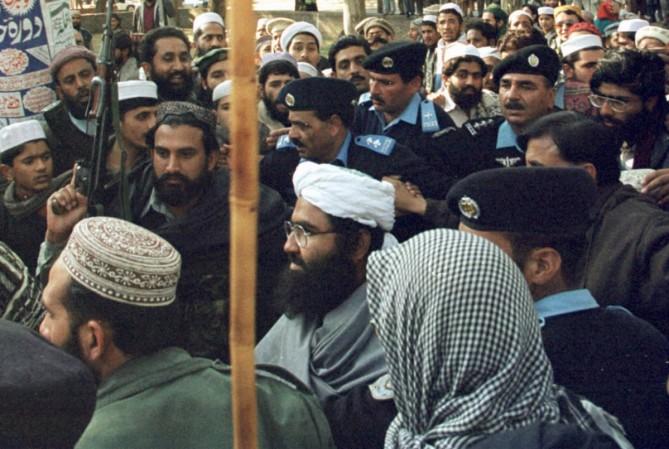
The BRICS nations' joint declaration issued at Xiamen summit in China on Monday, September 4, condemning terror activities and urging the international community towards combating terror through a comprehensive approach has left the Indian media ecstatic. It said the declaration which condemned, among others, terror groups based in Pakistan, marked a diplomatic victory for India.
The inclusion of the Jaish-e-Mohammed (JeM) in the list has been particularly satisfying for the Indian side because it is the chief of this outfit, Maulana Masood Azhar, who has been continuously shielded by the Chinese despite New Delhi's attempts to get him designated as a terrorist. It is true that the inclusion of the JeM in the list of terror groups in the joint declaration is a diplomatic low for Beijing for it puts it in an uneasy spot.
China has made cautious moves ahead of the key BRICS summit
But one thinks that is all about it in the Xiamen episode. The Chinese have made cautious moves ahead of and during the ongoing Xiamen summit of the BRICS because they want to use the platform to create an environment conducive for their own world ambitions. Condemning terror as a universal threat doesn't really establish the fact that the Chinese have now started disliking Pakistan. Its love for the latter was and always will be a strategy to counter countries like India and the US.
There is no mention of Pakistan whatsoever in the latest declaration that gives us the opportunity to celebrate a "diplomatic victory" over both China and Pakistan. The JeM and LeT have been mentioned along with other terror outfits and it clearly dilutes the case-specific significance of India's suffering against terror.
China has said the same thing as it had in Goa, but differently
In fact, one doesn't really find much of a difference between how China had responded during the last BRICS summit in Goa in October last year and its stance this time. On that occasion, China had negated India's outright effort to label Pakistan as the "mother ship of all terror" saying Islamabad has been fighting against terror and that it had made "great sacrifices". It was a diplomatic loss of face for PM Narendra Modi on that occasion as analysts believed he was pushing the BRICS far too much to condemn Pakistan and didn't really push the grouping's own agenda.
This time, the game was played a bit differently and it paid off as well. The Chinese have a far bigger priority in pushing its Belt and Road Initiative than decide on India and Pakistan and in that regard, the Xiamen declaration addressed its own concerns as well since the world route representing its ambition to emerge as a world power requires immunity against terror threat. President Xi Jinping will fancy winning more friends by means of inclusion of the condemnation of the terror threat in the declaration which will only facilitate its own plans.
Winning India as a friend in its scheme of things is also something Xinping seeks earnestly and hence the message condemning terror. There is really no reason to think that China has been a party to the declaration out of pressure. China wants to cement the bonds of the BRICS to help its own cause. That's about it.

China is a friend of Pakistani state, not the terrorists
The Indian media which is thinking this as a diplomatic victory must understand that China is a friend of the Pakistani State, not the Pakistan-based terrorists who are equally threatening to its western region. Also as far as Azhar is concerned, it is wrong to assume that China has been blindly shielding him every time India goes after him internationally.
Sources in Pakistan have said that each time China shields the JeM man, it also asks Pakistan the logic of doing so. Beijing's action on defending Azhar is entirely propelled by the urgency of serving its own national interest, which is to keep its rival neighbour under check.
China is diversifying its strategy to grow as a world power
One would also find a rare similarity between the Chinese and the Americans in this episode. Like the Americans in the past who had entertained the Pakistani state while knowing fully well the evil terrorists that receive the patronage from the same state, the Chinese today are trying to put into effect a similar strategy. It also reflects Beijing's efforts towards diversifying its external affairs policy to suit its varying needs – something that ambitious world powers often do.
India has not won nothing in this declaration as China will have to think out new methods to defend Azhar from here on but when it comes to achieving a bigger goal that transcends regional equations, China certainly bags a big piece of the cake.









